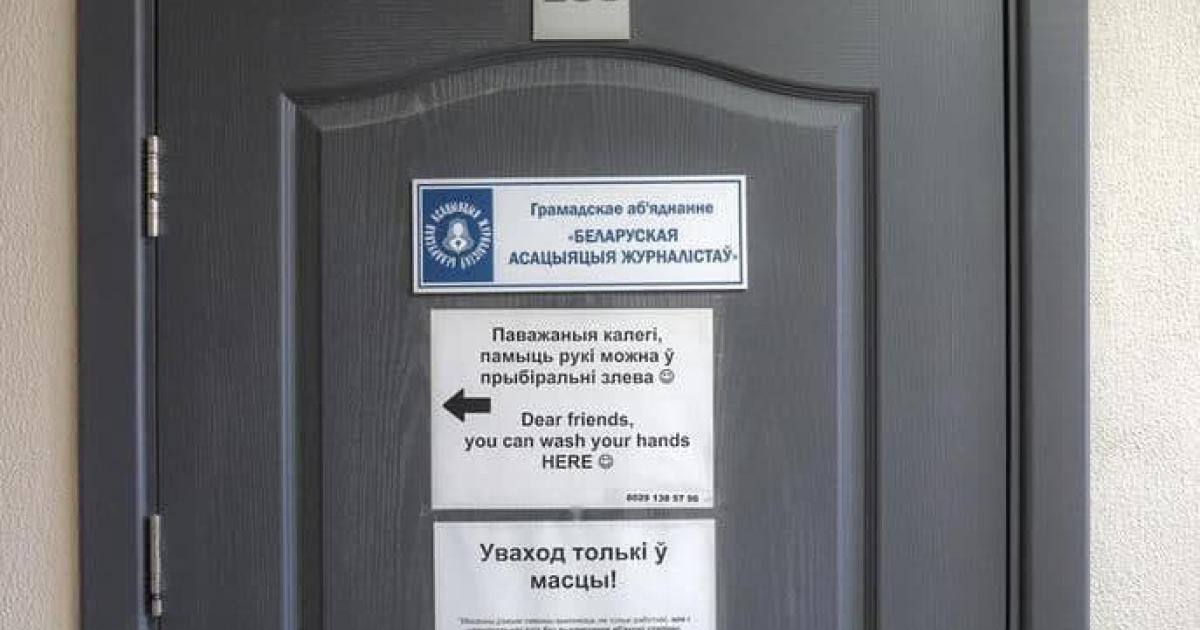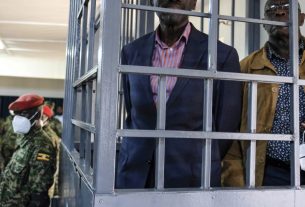Authorities in Belarus have designated the Belarusian Association of Journalists (BAJ) and staff an “extremist formation,” part of the ongoing, relentless crackdown on rights defenders and media in the country.
BAJ is a leading independent organization working to promote and protect freedom of expression and the rights of journalists in Belarus since 1995. In 2021, authorities stripped BAJ of its official registration on bogus grounds along with hundreds of other rights groups. Since working for a deregistered organization is a criminal offense in Belarus, BAJ’s leadership had to flee the country to continue their work from abroad.
The new “extremist” label formally prohibits anyone from getting involved in the activities of BAJ, including funding and other “assistance.” These activities constitute a criminal offense under Belarusian law punishable by up to seven years’ imprisonment.
BAJ’s leadership notes that while the decision was not unexpected, the new status puts more than 1,300 former BAJ members, as well as independent journalists it serves to protect, at even greater risk.
In 2021, Reporters without Borders called Belarus Europe’s most dangerous country for journalists. The situation with freedom of press in Belarus has only deteriorated since then. Independent media workers face politically motivated prosecution and shockingly long sentences, arbitrary arrests, beatings and other ill-treatment in detention, raids, blockings, being labeled as extremist, and more. Thirty-two media workers are currently behind bars.
BAJ’s deputy chair Aleh Ageyeu told Human Rights Watch the government’s decision is “an act of politically motivated persecution” in retaliation for the organization’s human rights work.
As Belarusian authorities double down on stifling all forms of dissent, human rights defenders in the country and in exile become their key target.
Just last week, a Minsk court sentenced the head of the prominent Belarusian rights group Viasna and 2022 Nobel Peace Prize winner, Ales Bialiatski, his deputy, Valiantsin Stefanovic, and Viasna’s lawyer, Uladzimir Labkovich, to ten, nine, and seven years’ imprisonment respectively.
The government aims to create an information vacuum around ongoing rights violations. But by courageously continuing their work despite staggering repression, Belarusian rights defenders assert that this goal will never be achieved and solidarity cannot be smothered.



